Interview | ‘Love in the Countryside’s gay beef and sheep farmer Richard on gay farmer suicides
Scottish farmer Richard spoke to Attitude about his own coming out story
By Steve Brown
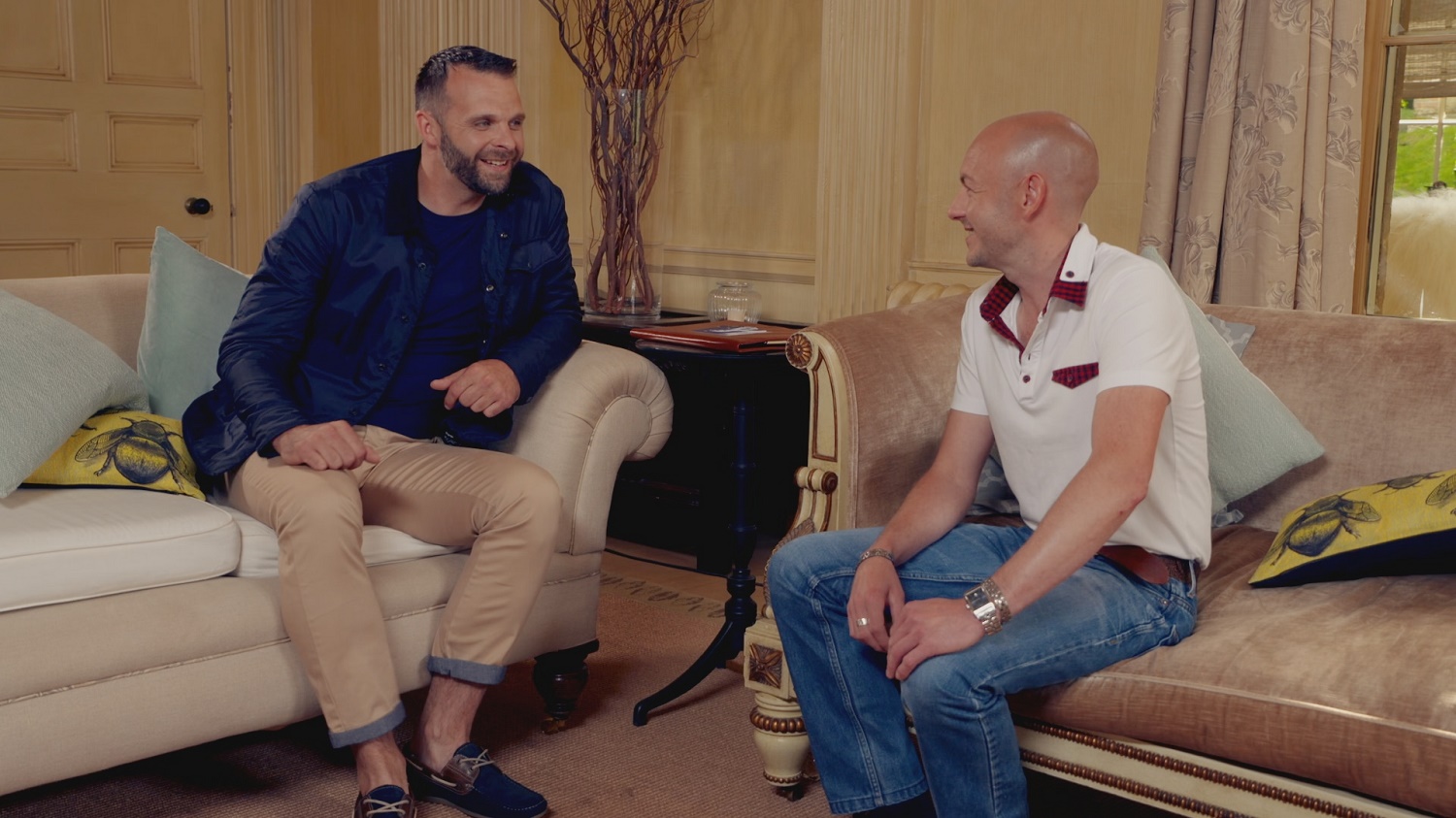
The new BBC series, Love in the Countryside, follows a group of farmers from all ages and genders who are seeking romance but due to their busy farming lives they have all been single for longer than they hope.
One of the men involved in the show is Richard – a 40-year-old openly gay gay beef and sheep farmer from Scotland – who speed dates four guys and then decided which of them he would like to take back to his farm in rural Dumfries and Galloway to see how they handle farm life.
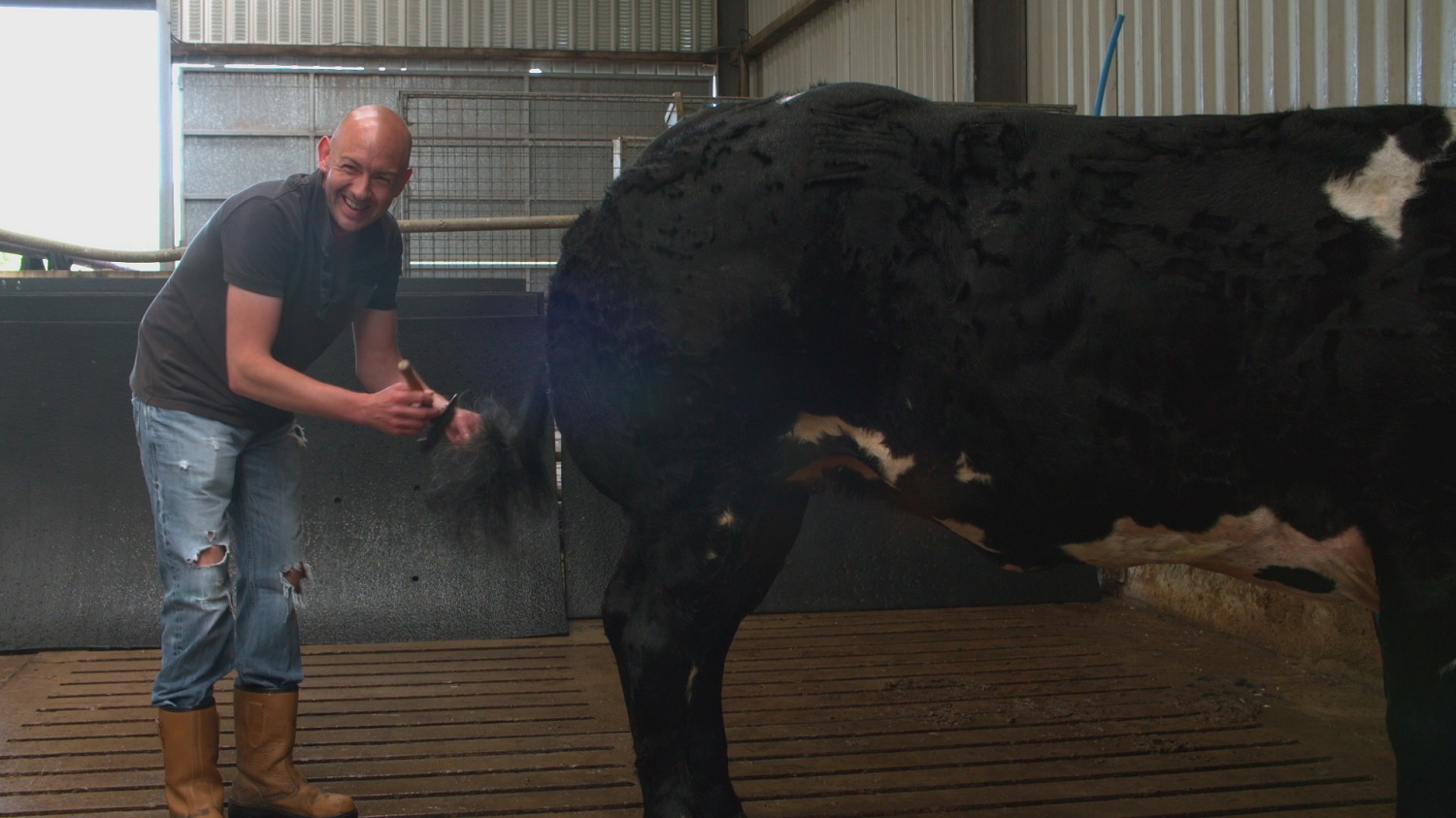
There has been a lot of recent coverage about the difficulties facing gay farmers, with Countryfile covering it a couple of weeks back which got widely picked up and revealing the increasing number of suicides among gay farmers.
In an exclusive interview with Attitude, Richard spoke about his coming out story and why he believes there has been an increase in suicides.
Why did you get involved in Love in the Countryside?
I think living in a rural area it’s quite hard to meet someone and I think it’s probably harder to meet someone if you’re gay living in a rural area. You’re miles away from any town or city so the chance to meet someone round the corner or in your local pub is hard.
There’s been a lot of stories in the media bout gay farmers recently, why do you think it’s so difficult for them to come out?
I think for years you try and hide it. It was more of a taboo that you didn’t really say anything, it wasn’t accepted.
I didn’t really come out until I was in my early 30s until I met someone and I think being with that person helped me come out and if I wasn’t with someone I don’t know if it would have been any easier, but I was finally out and people knew me by then and was involved in a number of different groups in the farming circle and it was made easier and everyone was very accepting and I think that acceptance helped me.
And when I did come out it was such a relief and the support I had was amazing, and there’s gay farmers out there who are terrified. One they could be married with families who live with their wife, kids, farm, respected in the area and I think that’s one of the big reasons why suicide is so high.
There a high number of recorded suicides in the farming community as seen on Countryfile.
I was involved in that.. there’s a helpline out there. It brings a positive story out of a lot of negative stories and I am so glad I was accepted.
Coming out and being gay has not changed my life in the area at all. One of my friends said to me, ‘Jeez Richard you’ve really opened this community up to not look at someone differently. You are still you and you haven’t changed it’.
At the end of the day you are just yourself and it’s just your sexual preference is different to other people.
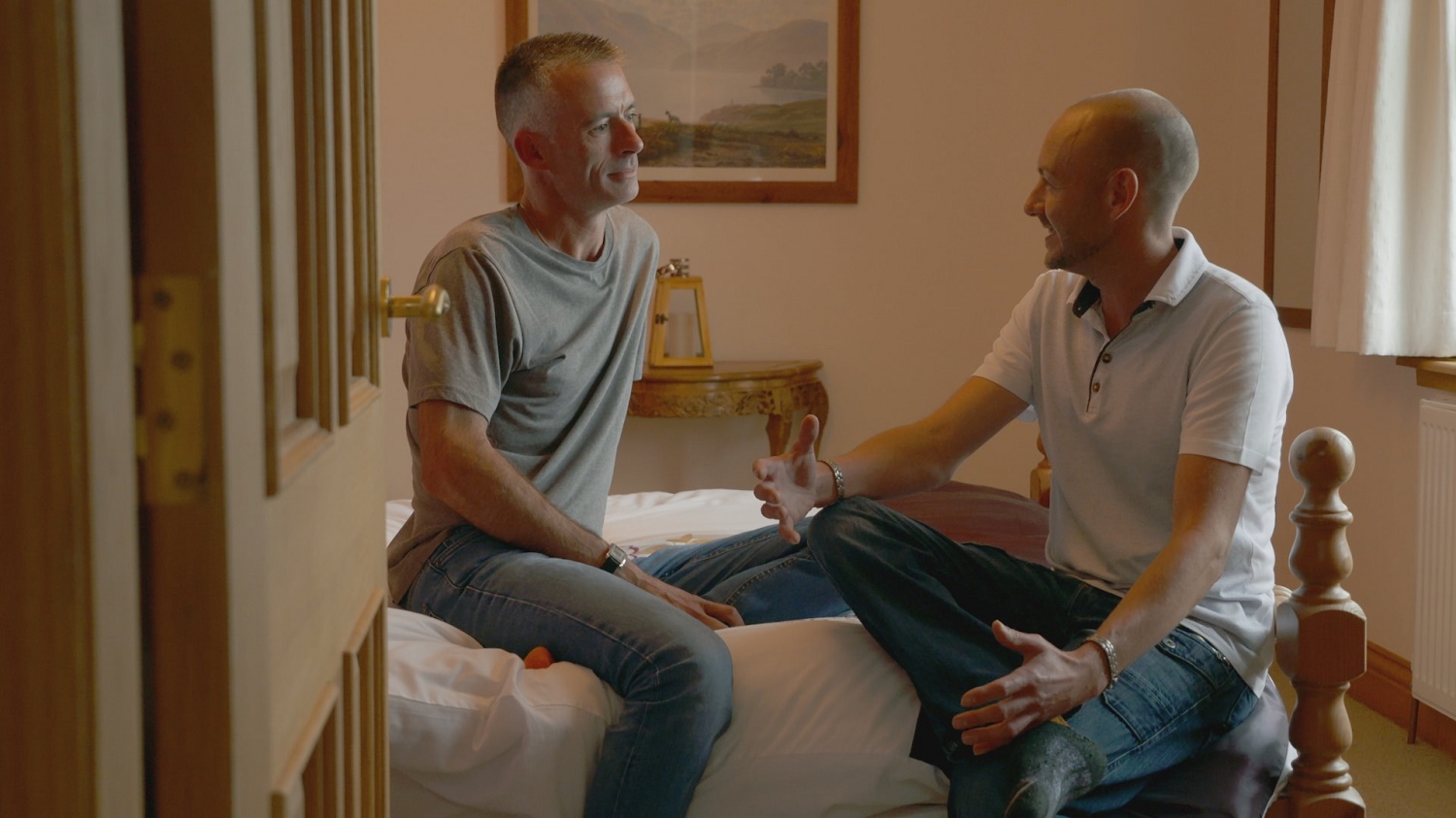
We go out now and they will say, ‘get your gaydar on’. The banter, that’s something I always wanted and didn’t want them to stop with the gay jokes., and I was probably just as bad.
It’s banter, it’s friendly. It’s been really good that way and they haven’t changed that banter.
Do you think there is some sort of heteronormative opinion towards farming?
I think when you’re living on a farm you’re working, and people do have a perception of what LGBT is and I think it’s maybe shown people that you can’t judge people like that.
You know, everyone is unique, and their private life is private. And I think for myself, before now I have been very private.
If I ever date someone, I will never bring them into my friendship group until I was ready. But I think the show has certainly changed me that way.
I had to embrace new guys coming into my life and making them come to the farm and meet them and I think that has change their perception because there are so many different people out there and you know they have been very accepting and listening and understanding that it’s not easy in a rural area to try and meet someone.
That’s why I try and go away when I can.
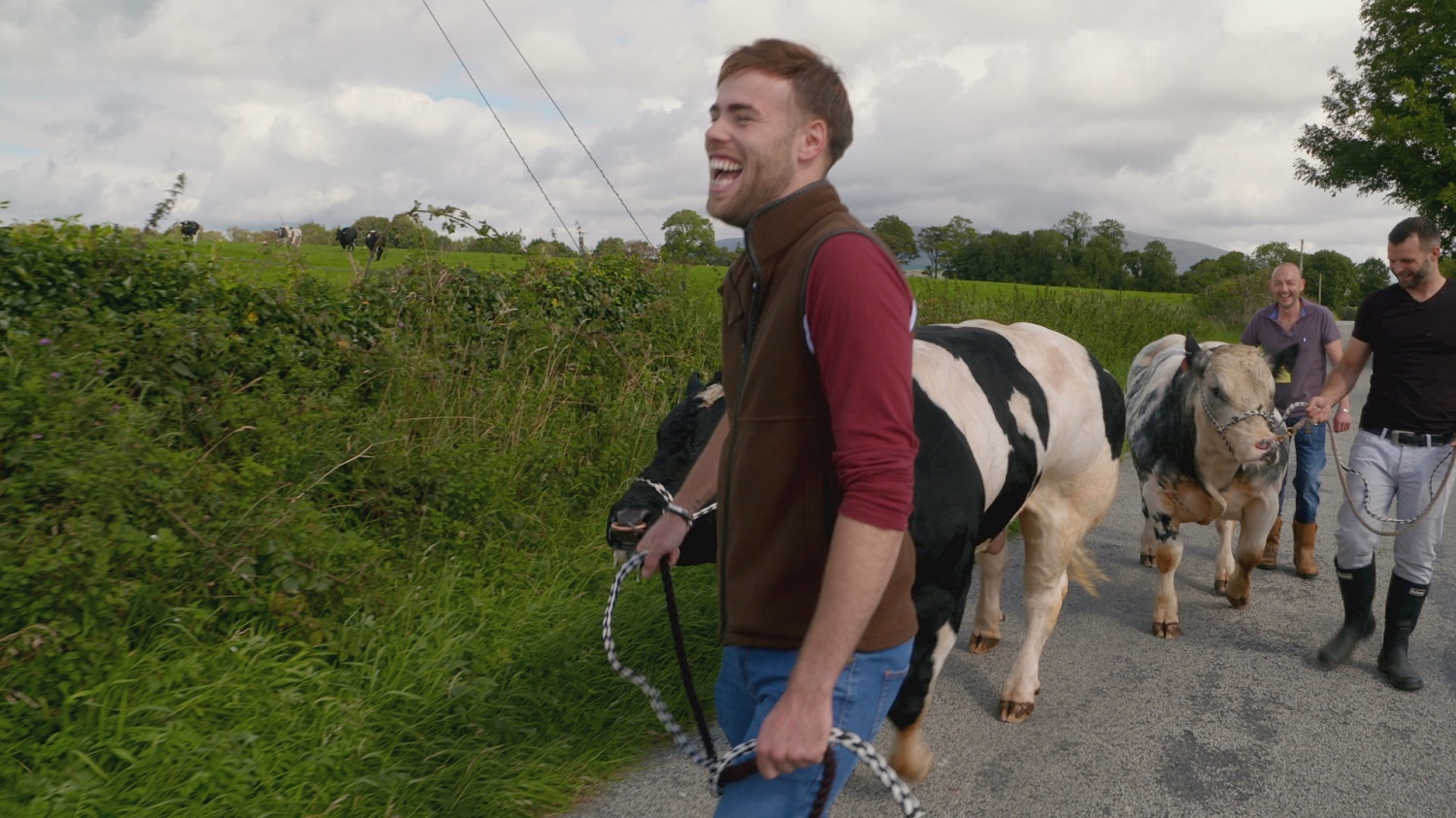
How do you think you can promote the LGBT community in these rural areas?
I’m involved in the Young Farmers, I coach the young ones in public speaking and I think the younger generation, they don’t care.
They are all going away to university. It’s normal. I think through the generations it is changing, it’s just the age group from 50 upwards and in their time it was very taboo and not many of that generation are out and many of them could be married and leading a hidden life.
I think if more people come out and had the courage and realised it’s not as bad as you expected and I think coming out, has shown people that I’m still myself, still normal, still farm.
I’m involved in committees and it hasn’t changed anything. There will be some negativity, but I was lucky I had a great group of friends.
I think it was very hard because when I split up with my first partner, my group of friends were their friends, then you go through the stage, you want to socialise with them but you’re like, ‘Gosh I’m back to having no gay friends’.
I think now it’s much easier because there are loads of gay apps and people can meet that way and I suppose there were many when I came out but then you meet people and meet their friends and make your own kind of way.
There’s a lot of gay dating apps out there for people. How do you feel about them?
The gay apps are great for people to meet I think in a rural area it allows people who aren’t confident enough to come out to chat to someone and eventually share a picture.
I had a number of rural people chatting to me and come out to me and I’ve known them. But it’s been difficult, they knew everything about but I didn’t know anything about them got to the stage where you didn’t have to tell them because they knew so much about me and I don’t know who I’m speaking to.
So I think they are good in that way and in a rural area, I could pick up people in Dublin you know that’s a ferry crossing that’s miles away but that’s how close people are that are gay. When you’re in a city it probably takes seconds.
I’m talking 100 miles away. In the city I think they are great. You can go to so many bars and clubs and meet people but here you don’t have that luxury. It’s a completely different life.
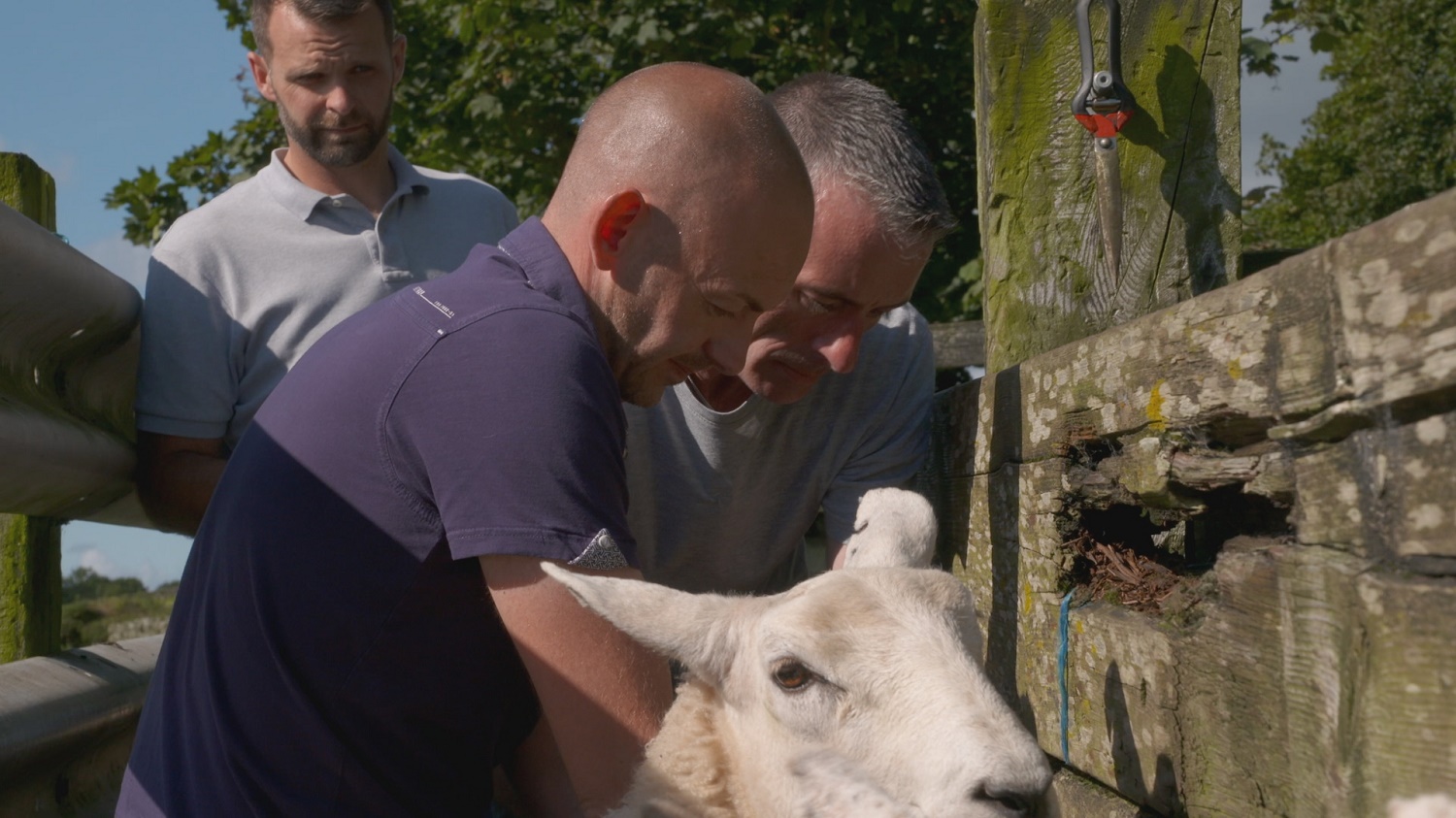
You said you came out in your 30s, when did you realise you were gay?
I think you always know and I think maybe in a rural area you try and hide it more and then you realise you’re not going to get married to a woman and be single and enjoy life but then someone comes along, and it was the love of your life.
Then you question, is this what I want. It’s making that step to come out. I had many a night that I was down low because you didn’t want any consequences if you did. Not only for yourself but for your family in a rural area. What was the consequences going to be four them.
How did your family take it?
It took my parents a wee bit longer to come to terms with it and being the only son, it was like who is going to take over the farm.
But now my parents are fine with it. My dates from Love in the Countryside came back and my parents were here and met them all.
They totally embraced it and I think that’s everyone in my circle of friends and life. I don’t hide the fact. I think if you do hide the fact it’s like you’re going back into the closet and regression rather than moving forward. But people don’t actually care.
They are just like you are who you are and we love you for who you are. And it’s quite nice that people say that.
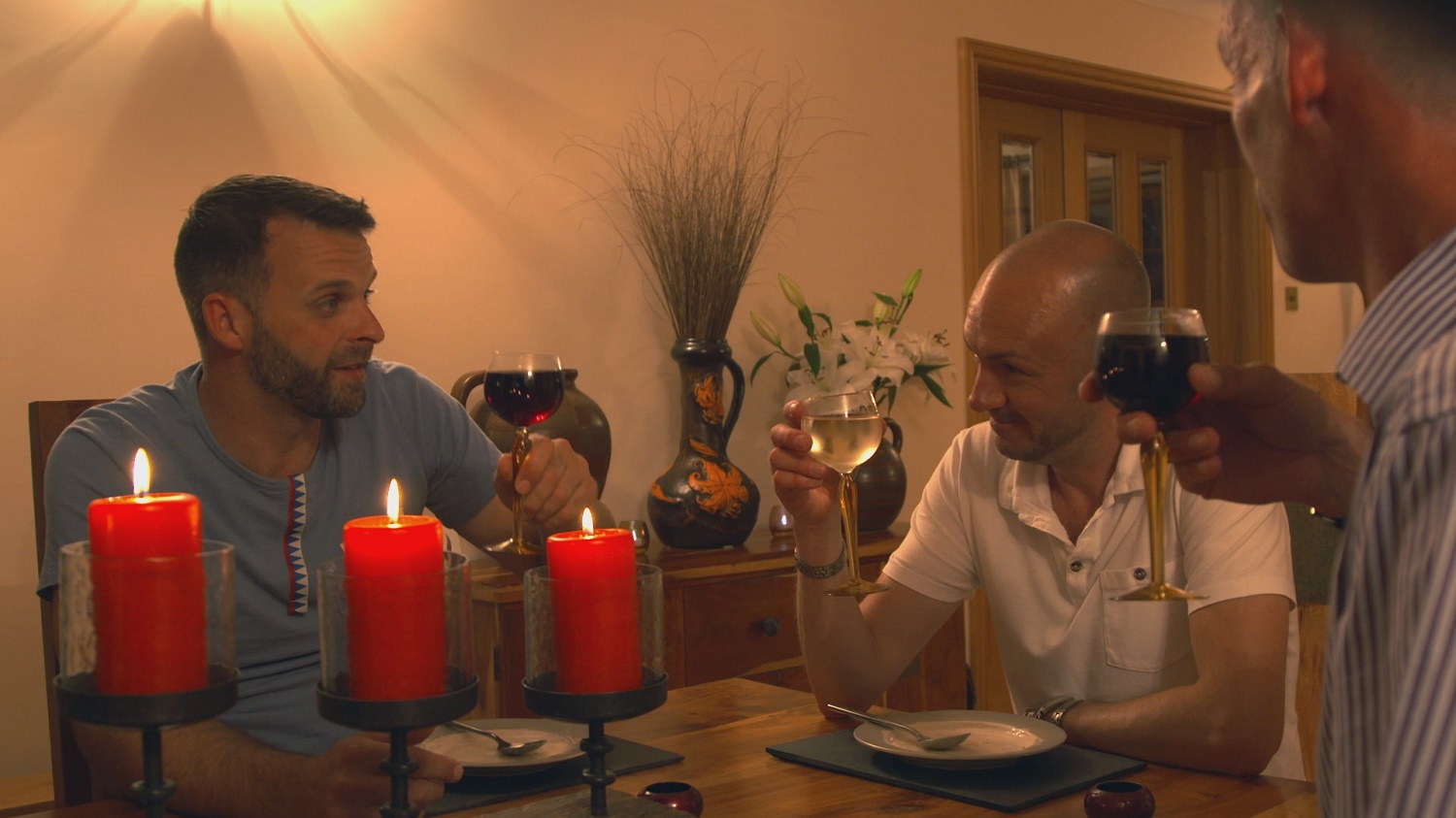
Why do you think gay farmers are being talked about now?
I think maybe the farming rural area are starting to come out and they are talking about it more and realising that maybe there is someone of the farm who isn’t married and think maybe there’s a possibility and maybe more farmer sons are coming out.
But they won’t stay at home but go to university, but I actually think that someone who has been in the farming industry who is gay goes off to pursue and new career and they have two lives.
The city life is completely different to the country life. So if you were gay in the city it would stay there and wouldn’t come back to the country. I think that attitude is going to change and what you saw on Countryfile prompted it more.
Some people involved in that are in their 60s or 70s and now feeling confident with themselves. But there is a number for the farming community who have sadly taken their lives and that time when you come out, it is terrifying and for some it’s too much, the fear and the rejection of what might happen.
Love in the Countryside continues Wednesdays at 9pm on BBC Two.
